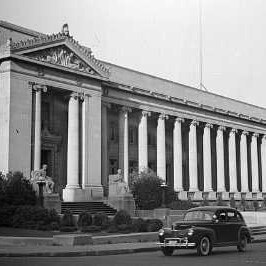What is the Discovery Process in Divorce
The discovery process in a divorce is a legal procedure in which each party to the divorce receives information and evidence relevant to the issues in the case from the other party or from third parties. This procedure is intended to ensure that each party has access to all relevant information and evidence in order for their Birmingham divorce attorney to present their case completely and fairly at trial.
The discovery process usually starts after the divorce petition is filed and might last until shortly before the trial. During this time, the parties may conduct several sorts of discovery, including written, oral, and physical or documentary discovery.
The exchange of written questions and requests for information between the parties is referred to as written discovery. Interrogatories, which are written inquiries that must be replied in writing under oath, and requests for the production of documents, which require the opposite party to submit documents or other tangible evidence for inspection, are examples of these. Interrogatories are commonly used to elicit information concerning the parties’ assets, debts, and financial information, as well as any other problems pertinent to the case.
Oral discovery, often known as depositions, is the process of interviewing a witness or party under oath in person or over the phone. Depositions are frequently used to gather testimony or evidence from a witness or party who cannot attend the trial. During a deposition, an attorney questions the witness or party, and the answers are recorded by a court reporter. Depositions can be useful in a Shelby County divorce because they allow the parties to acquire testimony or evidence that would otherwise be unavailable at trial.
Physical or documentary discovery entails the parties exchanging physical evidence or papers. Documents or records pertaining to the parties’ assets, debts, and financial information, including bank statements, tax reports, and real estate records, may be included. Physical or documentary discovery is commonly utilized to obtain information regarding the parties’ assets and obligations in order to decide how they should be divided throughout the divorce in Jefferson County, Alabama.
The discovery procedure in a divorce case can be time-consuming and costly. It is, however, an important component of the legal process since it ensures that each side has an equal opportunity to present their case at trial. It also helps to narrow the problems in the case and facilitate settlement because the parties may be able to reach an agreement on some topics after all relevant information and evidence are available.
It is vital to note that the discovery process is subject to certain rules and procedures, and parties may seek the assistance of the court if they are unable to obtain the information or evidence they need through discovery. The court may also impose sanctions on a party who fails to comply with discovery requests or who engages in misconduct during the discovery process. For all of these reasons, it is important to retain a local divorce attorney in Alabaster, or wherever you live, to help you through the process in Alabama.
Attorney Steven A. Harris regularly blogs in the areas of family law, bankruptcy, probate, and real estate closings on this website. Mr. Harris tries to provide informative information to the public in easily digestible formats. Hopefully you enjoyed this article and feel free to supply feedback. We appreciate our readers & love to hear from you!
Sharing is caring:







